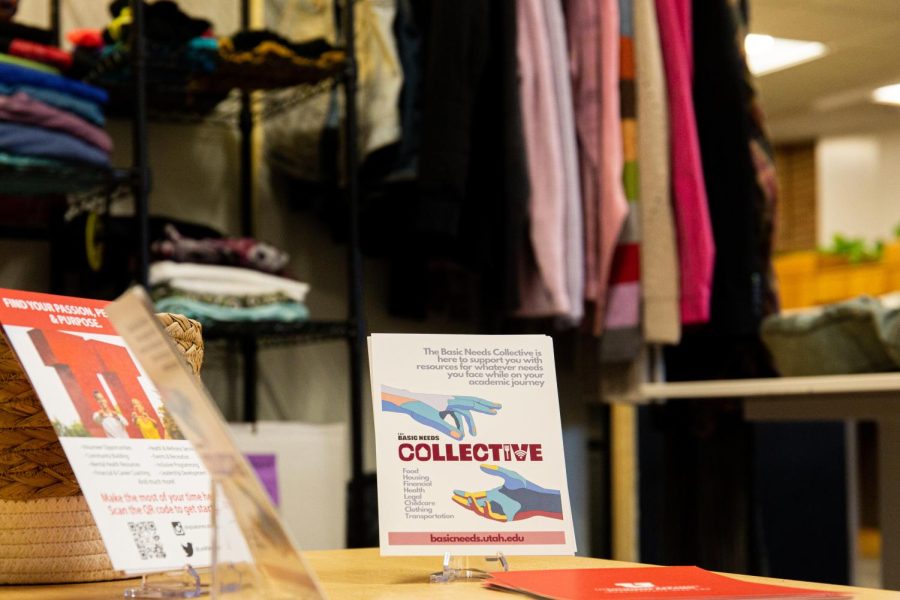When Julia Svedin took a job preparing samples of poop, she thought she could handle it after years spent cleaning up her kids’ messy diapers.
After a few weeks of seeing mucus bunched in the feces, Svedin, a senior in exercise and sports science at the U, has to hold back the bile that occasionally swims to the top of her throat.
“There’s a lot of gross specimen types, including sputum, which is basically boogers that are in the lungs,” said Svedin, who, as a mother of three, has seen her share of mucus. “I work in the parasitology and fecal testing lab, where we mostly find the parasites. And to me, it’s mostly just another lab job.”
Svedin dons gloves and protective clothing in the ARUP laboratory where samples of feces, urine, mucus and body fluids, including fluid from the eye, cross her path by the hundreds.
ARUP Laboratories, a private enterprise wholly owned by the U, receives more than 30,000 samples every day from the U Hospital and Clinics, Huntsman Cancer Institute, research on campus and laboratories nationwide.
Ronald Weiss, president of ARUP, said parts of the lab are open 24/7 to handle the volume of stools and other kinds of samples that come in daily, much of it at night.
By working full-time for ARUP, Svedin receives insurance benefits, day care options and lab experience.
After almost a year working at the lab, Svedin can recognize things in the stool that indicate certain types of illness. Svedin said scientists can tell a lot about a person’s health from their poop, including how well they are processing fiber or how much fat is in their diet.
Even though Svedin can’t test poop samples herself, she can recognize parasites hidden in the stool, or tell if someone has rotavirus infection because of diarrhea and other symptoms in the poop. She could even tell when her 8-year-old daughter, Kate, had rotavirus last year based on her work in the lab.
“Children get it a lot by touching their butts and then their mouths,” Svedin said. “My daughter had it for weeks. She had diarrhea and would throw up.”
Svedin said they test for pylori, which occurs in people who have nervous stomachs.
“You see bloody stool that is very dark like tar in people with pylori,” Svedin said.
Laboratory technicians take the stool, which has been preserved in a container with a formaldehyde-like substance, and swirl a stick inside to collect some of the poop, then run a machine that analyzes the poop for parasites or bacteria that could be making people sick.
However, the time spent working and studying costs Svedin precious time with her children. Svedin, who works 40 hours a week at the lab and takes five credits in biochemistry labs and a class, often works past 10:30 p.m. and said Friday is her one day to spend quality time with her kids.
Her husband, Mark Svedin, said he’s proud of the work his wife does.
“I’ve had more opportunities than most dads to spend time with my girls, but I’m looking forward to the day when she’s done,” he said. “When Julia wasn’t working and going to school, some of the little things got past me that she would do, such as doing homework with them, fixing them dinner and getting them into bed.”
While Julia Svedin is in school or work, her mother, or occasionally her neighbor, baby-sits her three daughters, Kate, Cherie, 6, and Addie, 2.
Svedin works four 10-hour shifts at work, and still manages to have fun joking with her co-workers about taking “crap” from everyone.
“Because it’s a poo lab, we’re all pretty lighthearted about it,” said Mike Walkington, Svedin’s co-worker and a junior in exercise and sports science. “If you have any crap, go ahead and bring it to us.”
 Lucas Isley
Lucas IsleyJill Duffy, a Public Heath Grad Student at the U, scoops a sample of poop to be tested from a large bucket of fecal matter. The lab receives more then 30,000 samples of all different kinds of body fluids a day.
 Lucas Isley
Lucas IsleyARUP has a collection of tapeworms and other parasites that they have collected over the years. The tapeworms in the parasitology and fecal testing lab range from three to 18 feet long.









